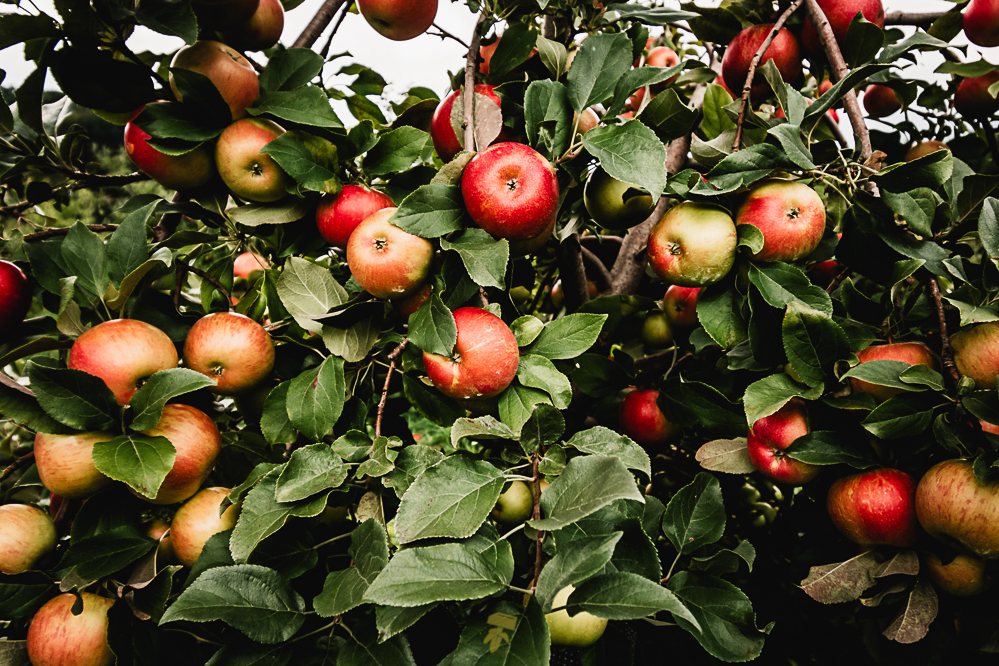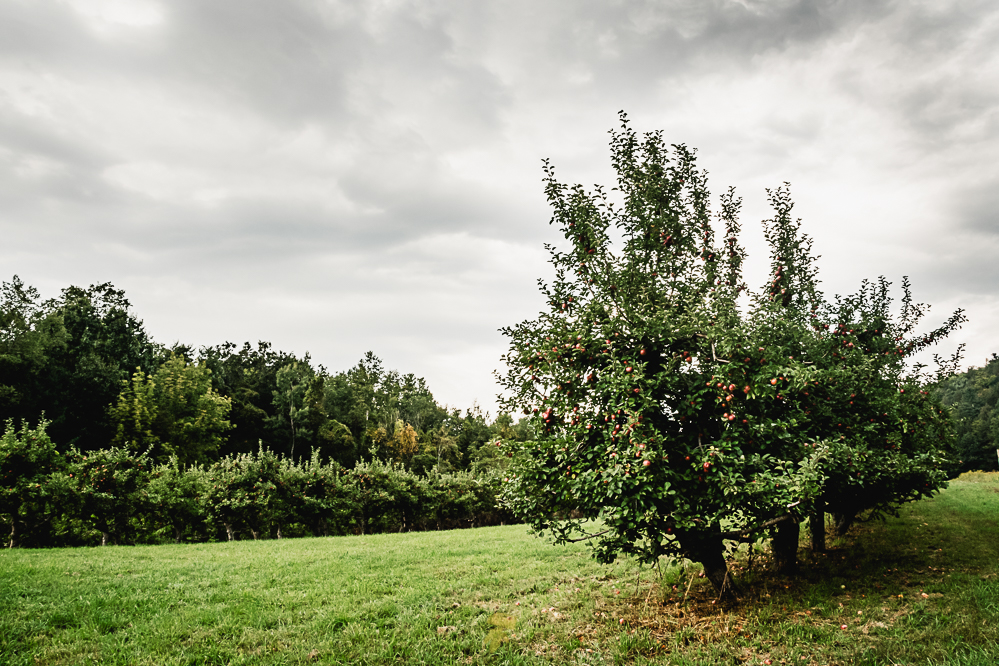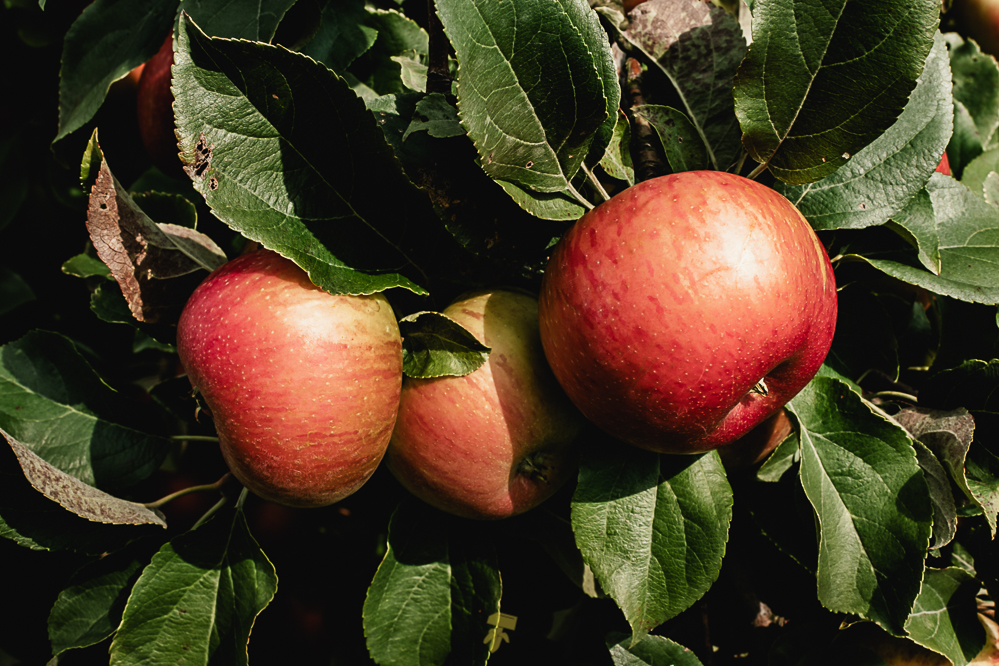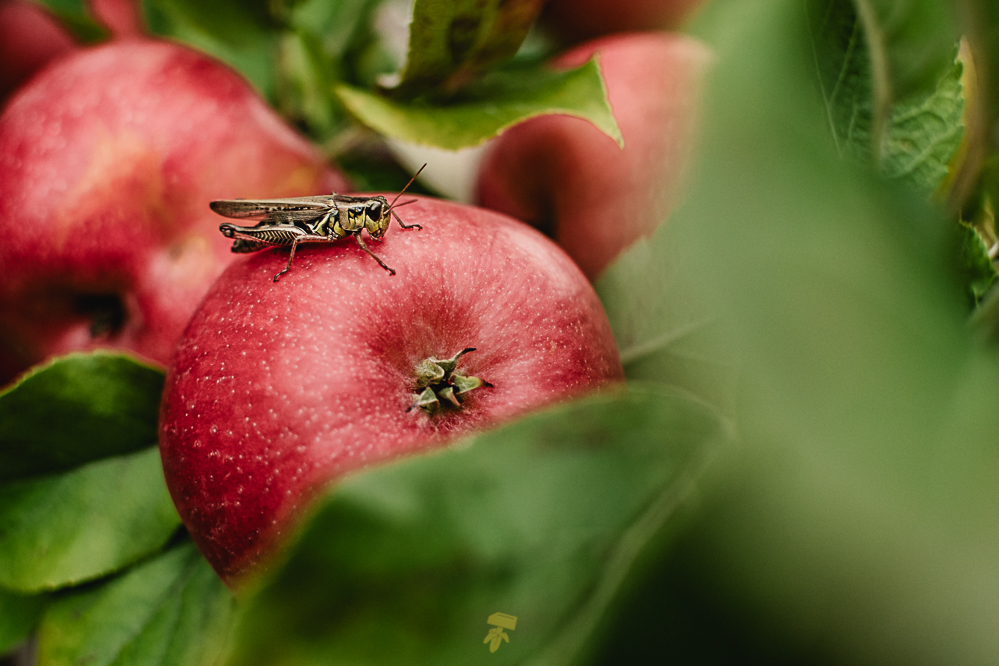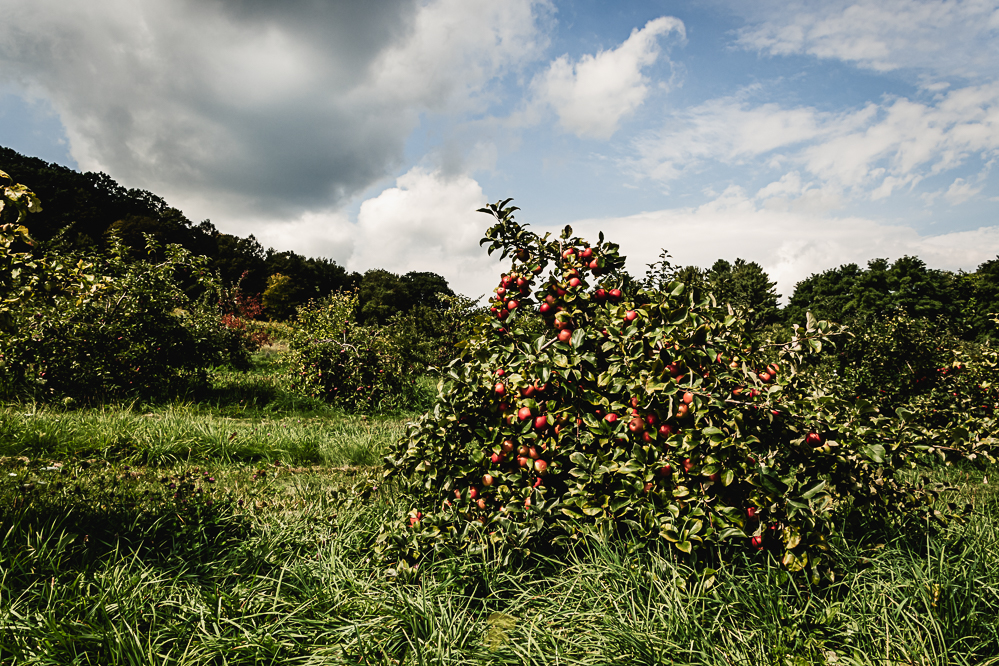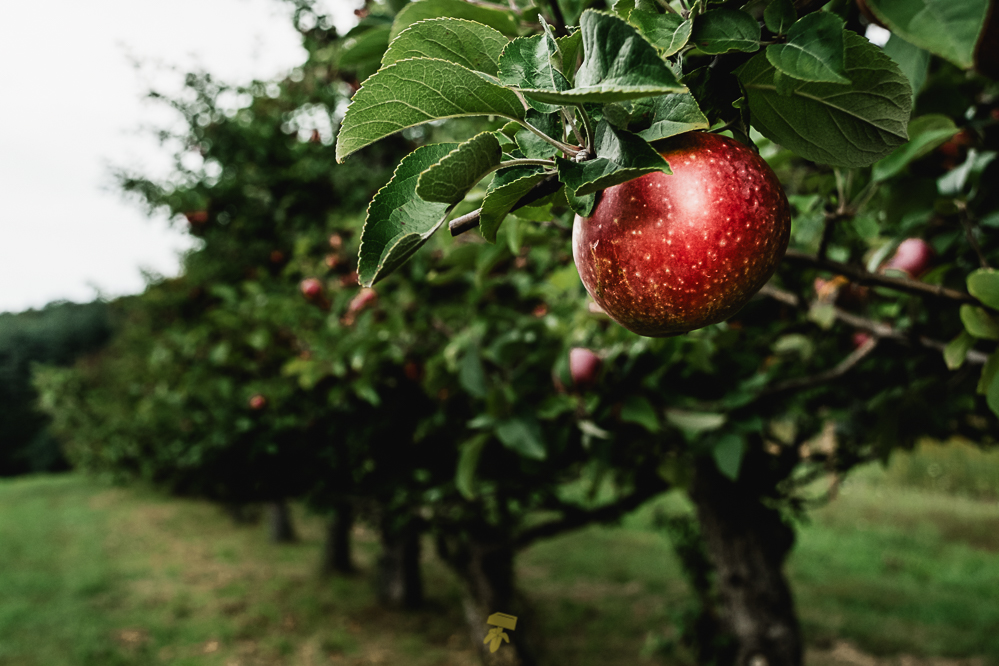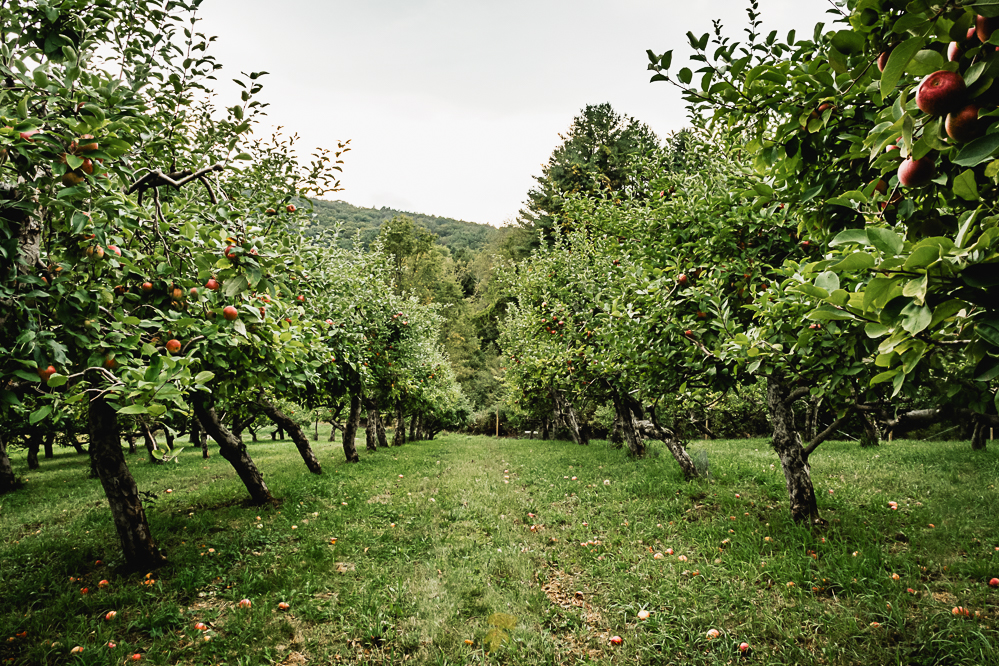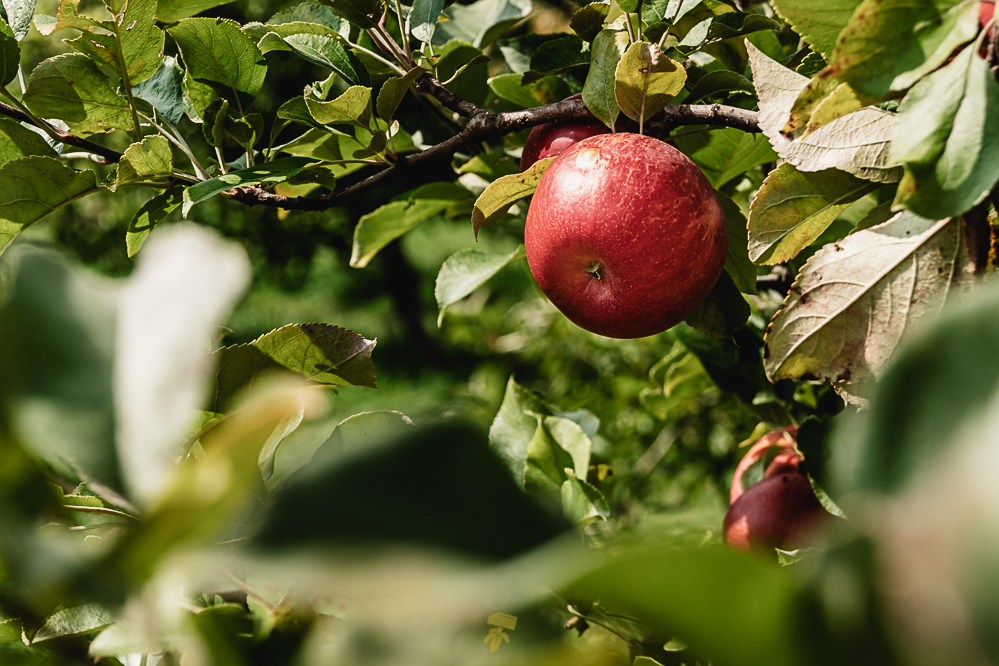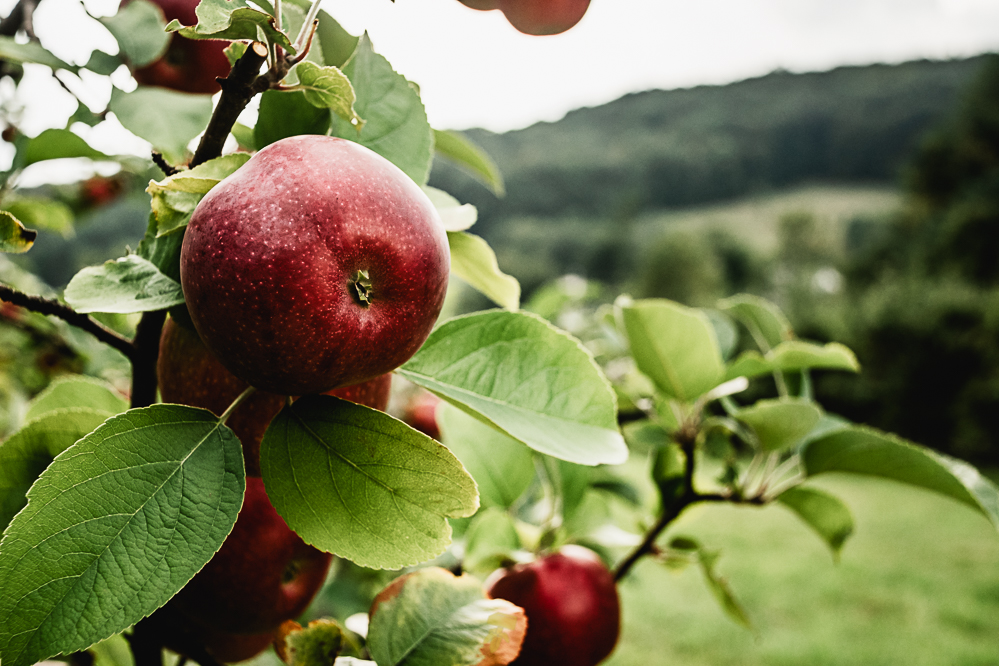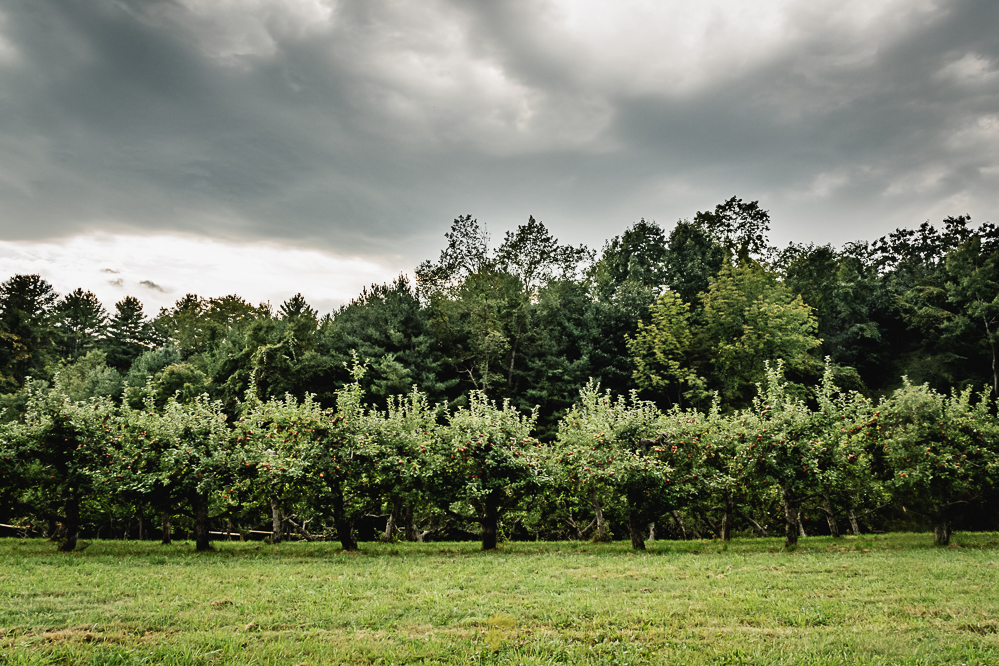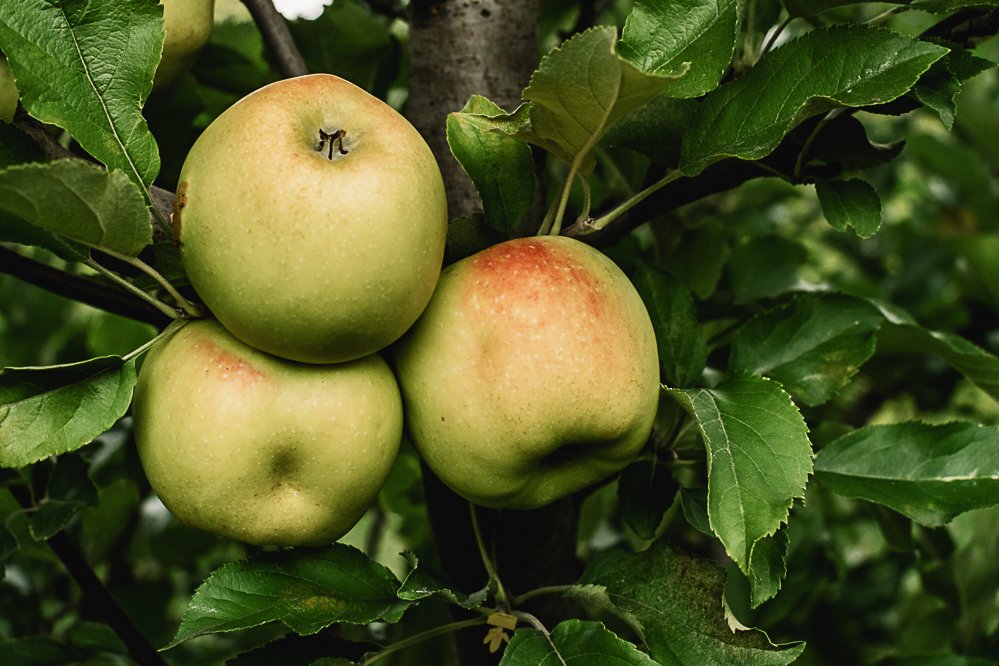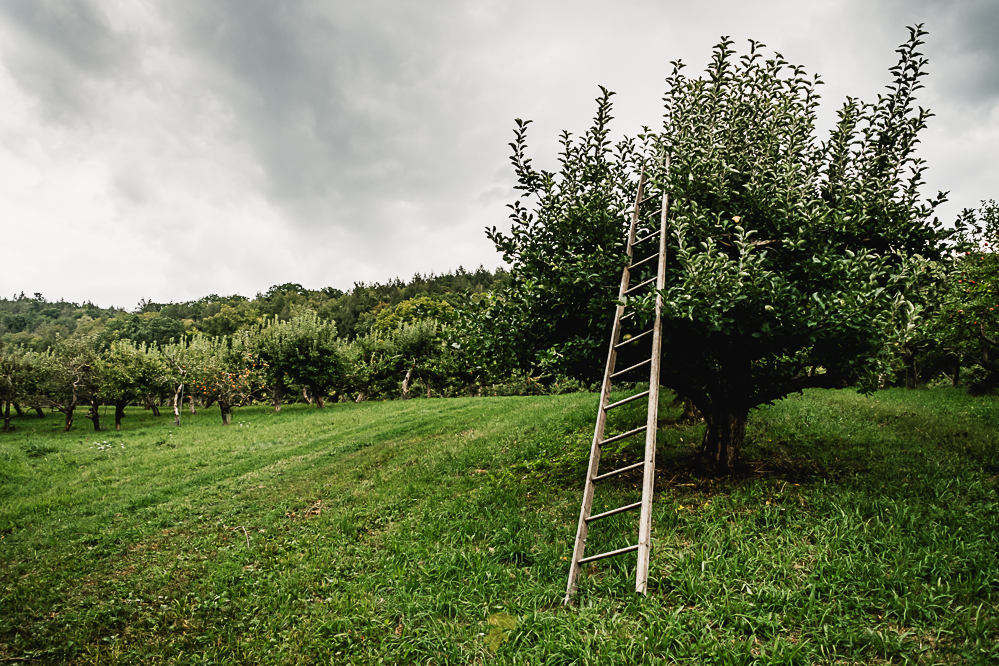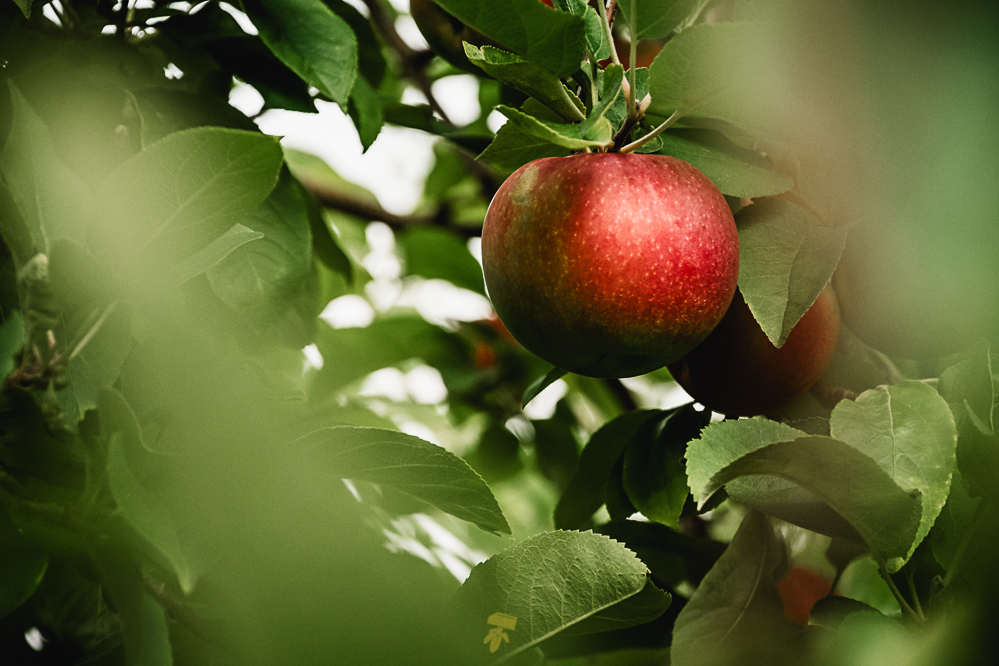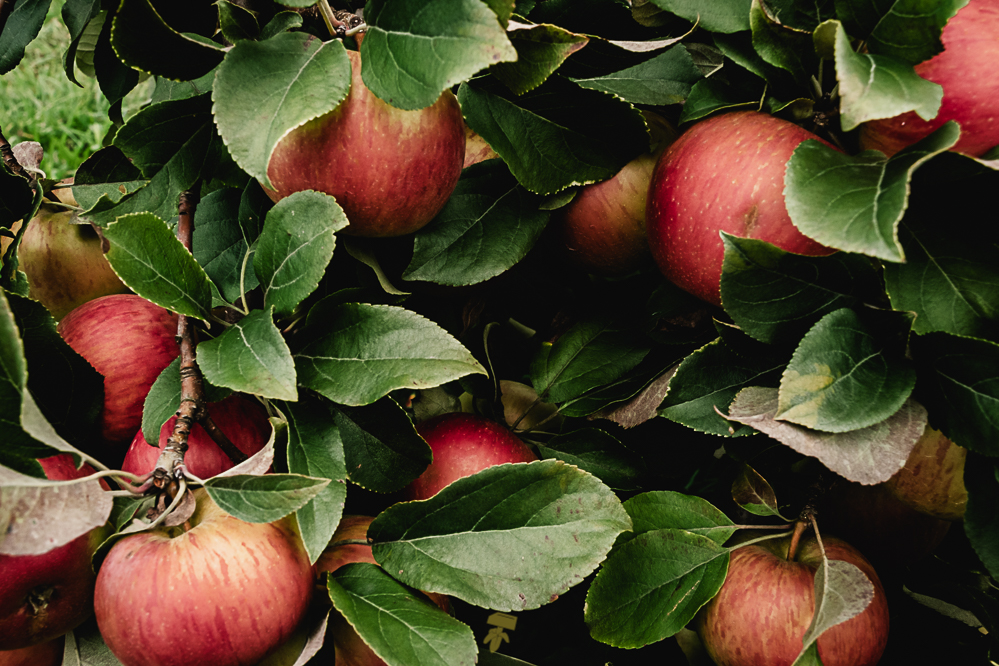Northern Spy, Glockenapfel, Beauty of Bath, Golden Russet, Smokehouse, and Winter Banana are just a handful of the 130 varieties of ecologically grown heirloom apples Scott Farm grows every year. Not to mention the apricots, blueberries, paw paw, cherries, peaches, grapes, pears, nectarines, plums, persimmon… and they are always adding new apple varieties and other fruits to expand the orchard.
Settled in 1791 by Rufus Scott along rolling hills in a rural community in southeastern Vermont, Scott Farm has been a working farm ever since. It first started out as a dairy farm but as ownership changed hands the farm gradually diversified growing all sorts of fruits and vegetables and raising your classic farm animals like pigs, horses, and cows.
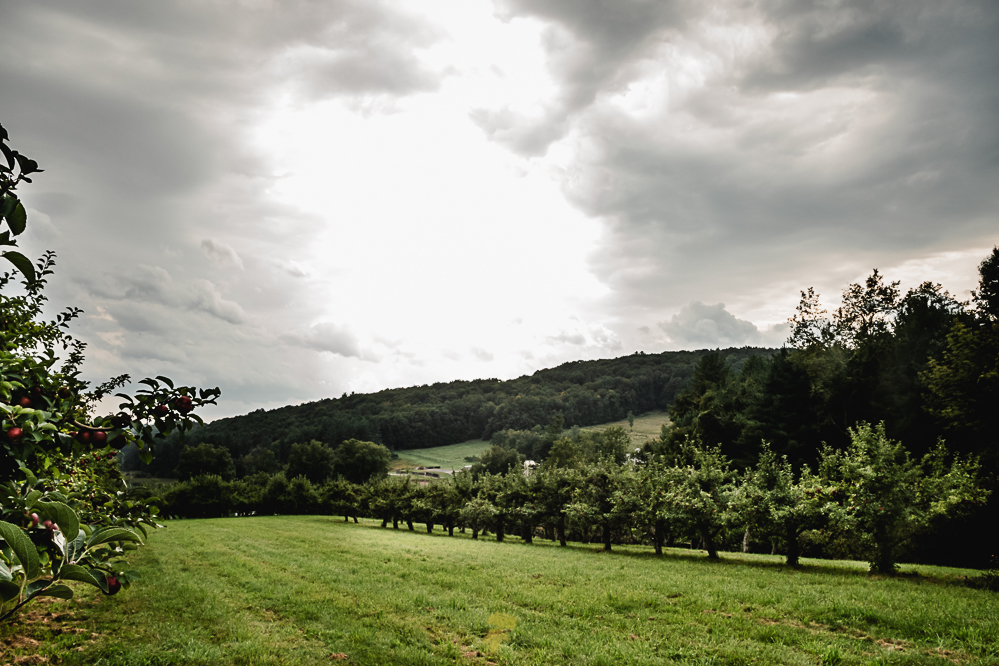
Nowadays they are mostly known for their heirloom apples, including historic varieties of which date back hundreds of years. At the time of this writing, they have roughly 6,000 trees, which they hand pick and prune. The orchard was used as a location in the 1999 drama film Cider House Rules, which featured Tobey Maguire, Charlize Theron, Delroy Lindo, Paul Rudd, and Michael Caine as Dr. Wilbur Larch.
Apples, and produce in general, are generally divided into two categories, heirloom and hybrid. Many of the apple varieties you see in grocery stores are hybrids which combine predictable traits like transportability, storage life, size, and color. On the other hand heirlooms are preserved and passed along for generations in their “pure” form.
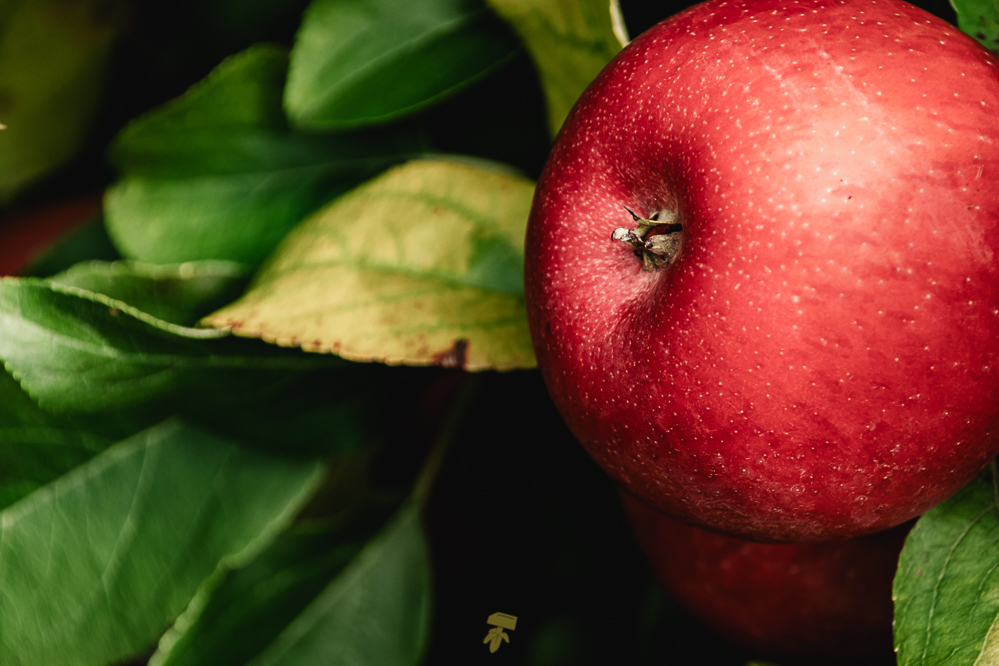
Heirloom apples may be less desirable being odd-shaped and flaunting unattractive colors lacking a more polished look, but are still absolutely delicious to eat. For example the lumpy Knobbed Russet which is compared to the looks of toads, potatoes, or as former orchard manager Ezekiel Goodband adoringly puts it, “shrunken heads.” Goodband, an internationally renowned pomologist (someone who studies and cultivates fruit), has devoted his life to apples and managed the orchards from 2001-2019.
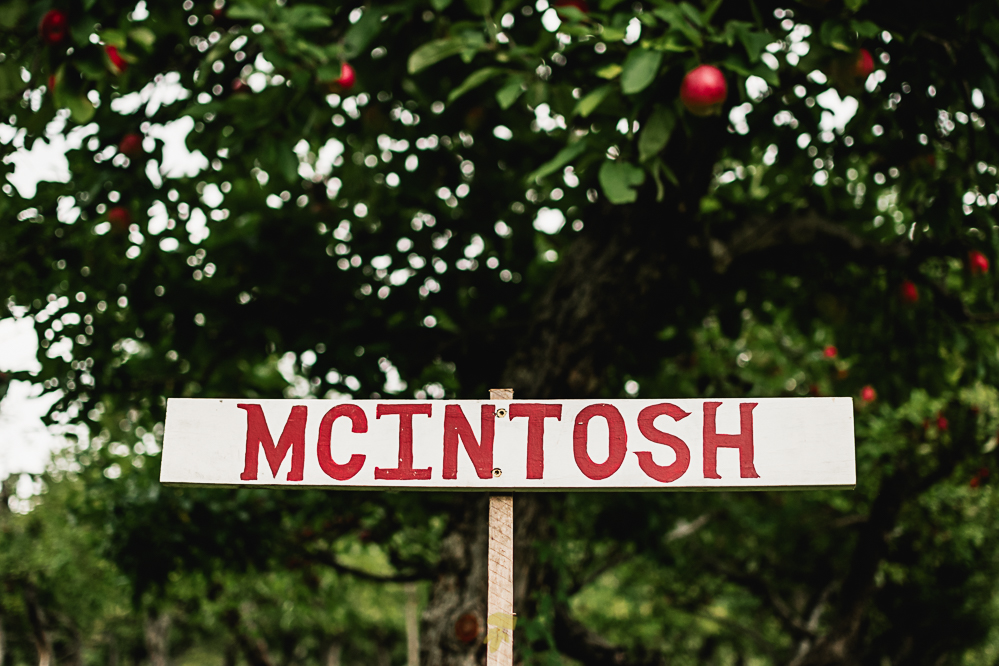
The orchard is a living, breathing ecosystem that is managed with biological and cultural methods which produce healthy, high quality fruits. Holding value in forming personal connections, approximately 80% of their annual crop stays within 100 miles of the farm, supplying the community that are more like friends and family. Many Vermont cideries use their apples to make unique and interesting hard ciders considering the vast variety of both hybrid and heirloom apples.

